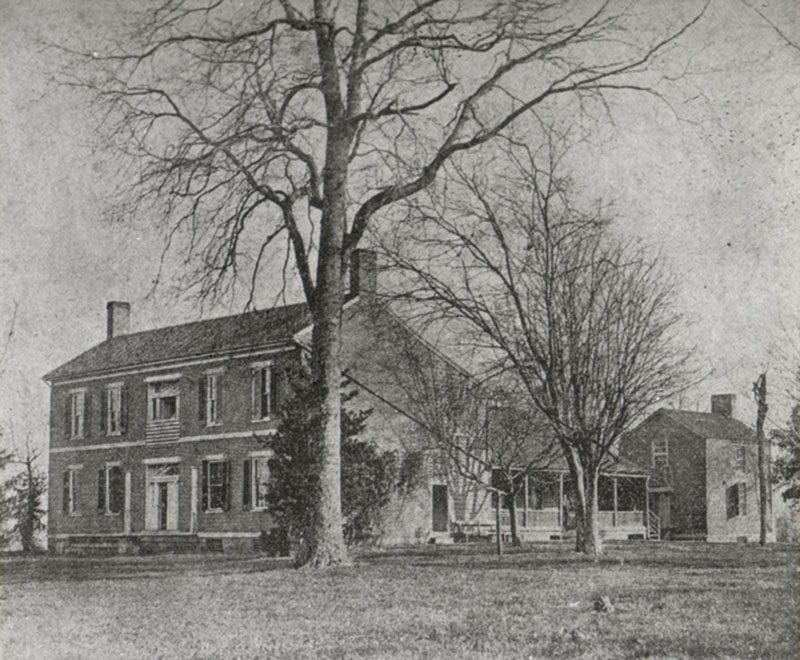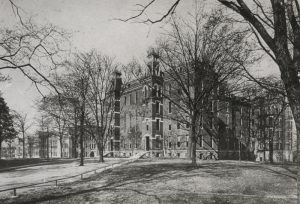An Intellectual Greenhouse: Wesley Hall


[New Wesley Hall]. Photographer Unknown. 1880-1932. Lantern Slide. E.E. Barthell Collection. Vanderbilt University Special Collections.
Here, we see Wesley Hall in 1879. In the same year William H. Vanderbilt, son of the Commodore, donated $150,000 to construct a new Wesley Hall (among other buildings), seen left. It became the center of social life on campus between students and faculty, particularly through annual dinner parties funded by Mrs. Cornelius Vanderbilt [Frank] in her 1885 will.
The building embodied the emerging prestige of the university’s faculty, who were, mostly, an amalgam of southern scholars displaced by the Civil War. Specifically, moving from farmhouse to residential college showed progress toward first chancellor Garland’s promise that instead of professors making the reputation of the university, the university would make the reputation of its professors.
As Camilla Benbow, dean of Peabody College, might say, Wesley Hall acted as an “intellectual greenhouse,” symbolizing the relationship between great minds and great spaces, of and for faculty, fostered by the new university.
